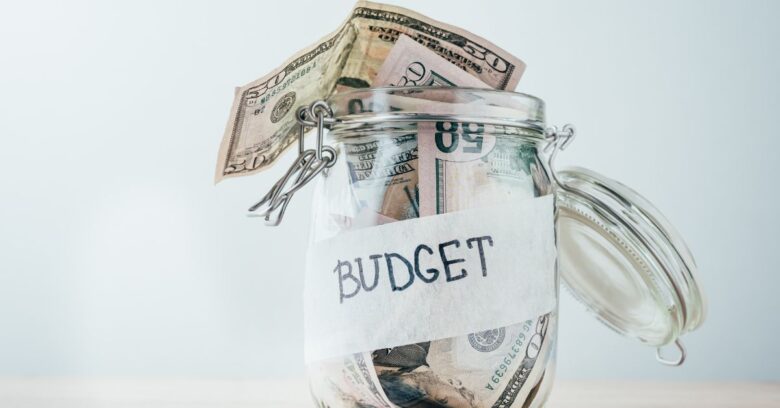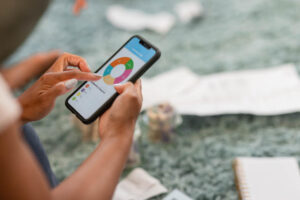Why Budgeting is Essential for Financial Success
Managing your finances effectively starts with understanding where your hard-earned money is going. Budgeting isn’t just a task; it’s a strategy for achieving your financial goals, whether it’s paying off debt, saving for a big purchase, or building an emergency fund. By tracking expenses, setting limits, and allocating funds efficiently, you can take control of your finances without constant stress.
Free Budgeting Tools and Their Incredible Benefits
Today’s digital age provides a wealth of budgeting tools that simplify the entire process. Free budgeting tools, in particular, are a lifesaver for those looking to manage their finances without additional costs. Beyond saving money, these tools offer automated tracking, personalized insights, and user-friendly interfaces. They take care of the nitty-gritty so you can focus on adjusting your spending habits and saving for what matters most.
Apps Revolutionizing Budgeting for Beginners and Experts
There are several standout apps tailored to meet your unique needs. Mint, for instance, is a powerhouse for tracking income and expenses in real time, consolidating all your accounts for a one-stop overview. Then there’s YNAB (You Need a Budget), which helps you actively allocate every dollar with precise goal-setting features. If investment tracking is a priority, Personal Capital excels by blending budgeting with wealth management insights. These apps prove that the right tech can make staying on top of your finances not just easy but enjoyable.
The Simplicity of Spreadsheet Templates for Budget Tracking
Not a fan of apps or online tools? Spreadsheet templates offer a hands-on and flexible alternative to track your budget. Excel and Google Sheets have a variety of free templates, ranging from basic expense trackers to more detailed monthly budgeting layouts. What’s great about spreadsheets is the ability to customize entries to match your exact needs. Whether you’re keeping it simple or designing elaborate formulas for expense categories, spreadsheets blend manual control with precision.
Finding the Budgeting Tool that Best Fits Your Lifestyle
The perfect budgeting tool depends on your financial goals and personal preferences. Ask yourself what you need most—automated tracking, helpful reminders, or user-friendly design? Consider how much time you can dedicate to managing your budget each week. Tech-savvy individuals might lean toward comprehensive apps like YNAB, while those who prefer a hands-on approach may benefit from spreadsheets. Understanding your priorities ensures you pick a tool you’ll reliably use.
Maximizing Savings with Your Chosen Budgeting Tool
Using a budgeting tool is only half the battle; knowing how to use it efficiently is the secret to maximizing your savings. Start by analyzing areas where you tend to overspend, then set realistic spending caps within your chosen tool. Use alerts to keep you accountable and reminders for upcoming bills. Most tools allow you to categorize transactions, offering insights into your spending patterns. Leverage these analytics to make small, consistent changes. Over time, these adjustments can lead to substantial savings.
Incorporating Advanced Techniques for Long-Term Financial Goals
Once you’ve mastered the basics, take your budgeting up a notch with advanced strategies. Create separate budgets for short-term and long-term financial goals—like vacations or retirement. Consider the 50/30/20 rule, where 50% of your income goes toward needs, 30% to wants, and 20% to savings. Many tools support sinking funds—dedicated savings categories for large, infrequent purchases. Leveraging strategies like these ensures your money is not only managed but optimized for growth over time.
Avoid Common Budgeting Pitfalls to Stay on Track
Even with the best tools, budgeting mistakes can derail your progress. Oversimplifying your budget without considering variable expenses is a common error. On the flip side, being too rigid can lead to burnout, as it doesn’t allow room for unpredictable costs or enjoyable indulgences. Another mistake? Forgetting to review and update your budget regularly. Avoid these pitfalls by maintaining balance, staying flexible, and reviewing your financial game plan weekly.
Real-Life Stories of Budgeting Success
Budgeting tools don’t just look good on paper; they deliver results! Take Sarah, a college grad who used Mint to track her spending and realized she could save $200 a month by cutting back on takeout. She used that money to build an emergency fund in six months. Or consider James, a freelance photographer, who combined YNAB with Google Sheets to save for a down payment on his first home. Real-world stories like these show how budgeting tools empower users to achieve the impossible.
Take Charge of Your Finances Today
You no longer need to rely on guesswork when managing your money. From free apps to simple spreadsheets, there are budgeting tools tailored to every need. Empower yourself to track expenses, set goals, and build savings effortlessly. Whether you’re just getting started or refining your financial habits, the right tool can make all the difference. Start using one today, and take the first step toward a brighter financial future—you’ve got this!



